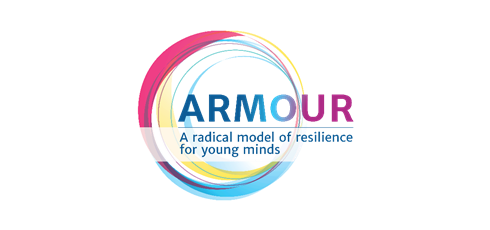 https://www.synyo.com/wp-content/uploads/SYNYO-NEWS-featured-image-NEW01007705EN.png
400
459
leo
https://www.synyo.com/wp-content/uploads/2017/09/synyo-logo.png
leo2025-01-01 10:47:112025-02-10 10:48:51BOND: Outcomes in Advancing Education, Tolerance and Heritage Preservation to combat Antisemitism
https://www.synyo.com/wp-content/uploads/SYNYO-NEWS-featured-image-NEW01007705EN.png
400
459
leo
https://www.synyo.com/wp-content/uploads/2017/09/synyo-logo.png
leo2025-01-01 10:47:112025-02-10 10:48:51BOND: Outcomes in Advancing Education, Tolerance and Heritage Preservation to combat AntisemitismARMOUR

ARMOUR: Focus groups in 7 partner countries implemented for the development of training materials
Polarisation, radicalisation, violent extremism, and terrorism are priority challenges for social security and stability and hence addressed in ARMOUR. For developing effective solutions for preventing radicalisation, it is crucial to build on the insights of practitioners. These stakeholders are working with vulnerable groups and support their process of resilience development. Therefore, the project partners conducted focus groups with practitioners, which will inform the creation of dedicated training materials that will support their work.
The focus groups were carried out in the seven partner countries Italy, Austria, The Netherlands, Spain, Malta, Romania, and Greece. They took place between June and July 2019, engaging more than 60 participants from the different target groups identified in the project. These included first-line practitioners, professors, educators, youth workers, social services, psychologists, minor’s services, LEAs and professionals working with youth and minors. The three main themes that were covered in the discussion included:
- the understanding of radicalisation and violent extremism, its causes, factors and key elements;
- the existing mechanisms, services protocols, programs, strategies and policies to prevent and counter polarisation, radicalisation and violent extremisms;
- the practitioners’ views on the elements of effective prevention and intervention actions to build resilience of youth and minors.
The focus groups made clear that defining “extremism” and “radicalisation”, and to analyse the conditions that push younger people towards extremism is crucial for developing resilience building activities. Generally, it was emphasized that radicalisation is a very complex phenomenon, which is influenced by multiple factors that push individuals towards extreme positions or even violence. These actual factors or triggers can be synthesized into the following categories:
- individual and psychological type of factors;
- relations and psycho-social factors;
- socio-economic and structural factors.
The classification will support the development of experimental labs and the trainings. The experimental labs pre-design architecture, which derives from these categories and the underlying factors, is focused on three main areas:
- Individual capacity building;
- Community empowerment and resilience;
- Moderate and proportionate state response.
This structure will be used for training development and will support the validation of the actual training and exercises as it can be applied for different types of ideologies. The conclusions from the focus groups therefore provided seminal inputs, elements and considerations for the implementation of the intended Experimental Labs (ELs) and the training activities, which will be developed in ARMOUR over the next months.
Links
Keywords
Focus group, practitioners, research, results, radicalisation, extremism, jihadism, training




